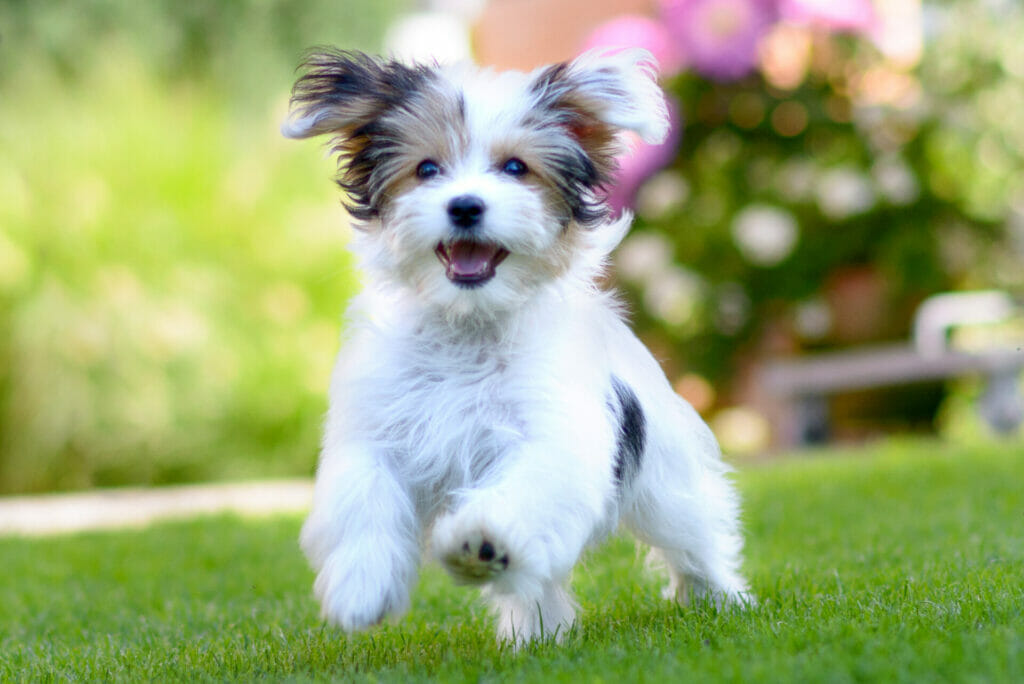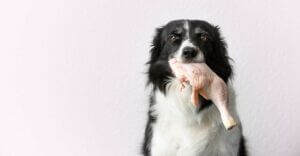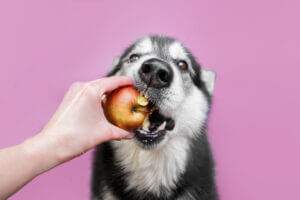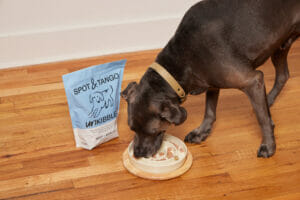There are few moments in life more exciting than bringing home your new puppy. As you are preparing for your new pup to join your family it’s important to be prepared with all the supplies you will need to care for them. Puppies need lots of love and attention, but they also need a lot of supplies to help keep them safe, healthy, clean and entertained. Here’s everything you’ll need to set your dog up for success:
Puppy Food:
Puppies need to eat so one of the most important things you’ll need to have for your new puppy is good puppy food. Talk with your breeder or the rescue where you are adopting to find out what kind of food they have been feeding. As your new puppy acclimates to life at home, you’ll want to keep their food the same as what they are used to. If you prefer feeding a different puppy food in the future, you can purchase that as well and after consulting with your puppy’s veterinarian mix the puppy’s food, they are used to with the new food you want to switch to. Mixing the food together can help prevent any upset tummies by a sudden food change.
Food and Water Bowls:
Your puppy will need bowls to eat their food out of, and a bowl for water. Try to select bowls that are easy to wash and disinfect so that you can keep your dog’s bowls clean. As young puppies are still figuring out how to eat out of their bowls instead of playing in them, it’s helpful to get weighted bowls that won’t tip over when they are eating or drinking. This will help prevent messes at mealtimes.

Treats:
You’ll want to make sure to stock up on high-quality treats that are small, or that can be cut into small pieces. You will use lots of treats when teaching new skills like potty training, and basic obedience skills so it’s important to use small treat pieces to keep your puppy from filling up. Stock up on treats before the puppy comes home so you’ll be prepared to start rewarding good behavior right away.
Safe Chews
Puppies explore the world through their mouths and it’s important for puppies to have safe things to chew on. Chew toys can be a great source of entertainment for puppies and help them to avoid getting bored. Chew toys can also help massage and soothe your new puppy’s gums as they are teething and getting their adult teeth. Making sure you have safe chews can help keep them entertained and can help prevent them from chewing things around the house like shoes and furniture.

Leash & Harness:
For taking your puppy outside to potty, and as they start going on walks, you’ll want to have a leash and a comfortable non-restrictive back-clip harness. When teaching a puppy to walk on a leash a simple six-foot leash is best. Make sure to get a leash that is lightweight, especially if you have a small breed puppy so they don’t get weighed down by their leash. When selecting a harness, find one that fits the size they are now without restricting movement, but isn’t so loose that your puppy can back out of it or get tangled in the harness. As your puppy grows, you’ll likely need to upgrade to a larger size, but it’s important to make sure to get the correct size for your puppy when they come home.
Collar and Identification Tag:
Your pup will need an appropriately fitted collar, with an identification tag that has your contact information on it. An adjustable collar may grow with them as they grow, though depending on the size and breed of your new puppy you may need to plan on getting multiple collars as they grow to make sure it properly fits. Having a collar with an identification tag right away is important in case your puppy ever gets lost.
Toys:
You’ll want to make sure your new puppy has plenty of toys to play with. Toys provide great stimulation to keep them entertained. Your puppy should have toys for independent play, as well as for interactive play with you. We don’t want to encourage our puppies to play with our hands or clothes so it’s helpful to gently redirect them to playing with toys. Try different sorts of toys: plush toys, hard rubber toys, balls, as well as toys that make different noises. Each dog will have their own personal preferences for what types of toys they like best.

Bedding:
Giving your puppy their own bed can help provide a space for you to encourage them to take their chews to while the family is eating. If you’re bringing home a large breed puppy, you may consider buying an inexpensive puppy bed to start, and then upgrade to a full-sized bed when your puppy gets older. When selecting a puppy bed make sure to get one that is fully washable, to make cleanup from accidents easier.
Crate and/or baby gates:
When you can’t provide supervision, your puppy is going to need a safe place to be in your house. The easiest way to do this is to either use a crate and kennel to train them, or to designate an area of your home as a safe space for them to be and use a baby gate to block that area off from the rest of the house. A crate or small puppy-proof room will help prevent your new puppy from getting into things that could make them sick or hurt them if chewed. This can also support with potty-training.
Grooming supplies
All dogs need regular grooming and starting early with socializing your pup to grooming supplies is important: you will want to have shampoo, nail clippers, and brushes. The type of brush you need will depend on what type of dog you have and their coat type. If you aren’t sure what type of brush will be best, talk with your breeder or the rescue where you have adopted them to find out what kind of brush will work best for their fur type.
Registration for Puppy School
Big or small, all dogs benefit from opportunities to learn new things. A trained dog is a happy dog and it’s never too early to start helping your dog learn things. A puppy kindergarten or beginning puppy training class will help get you and your dog off on the right paw when it comes to training. Even if you have had a dog before, going to puppy class is a helpful way to help socialize your puppy to being around other dogs and people, and can support you both communicate more clearly with each other.




















